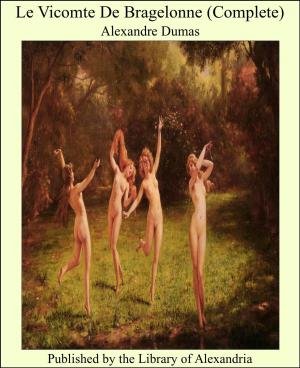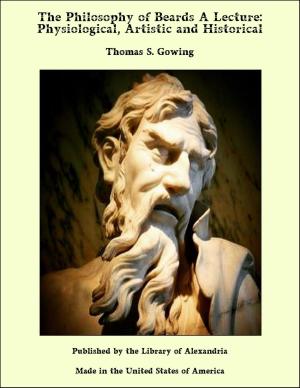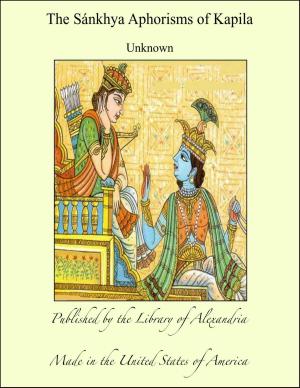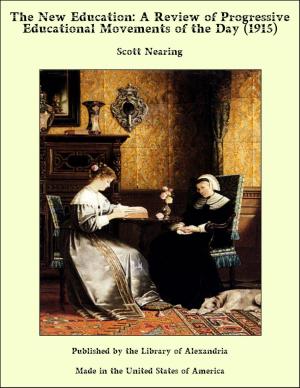The Kathá Sarit Ságara or Ocean of the Streams of Story
Nonfiction, Religion & Spirituality, New Age, History, Fiction & Literature| Author: | Somadeva Bhatta | ISBN: | 9781465544117 |
| Publisher: | Library of Alexandria | Publication: | March 8, 2015 |
| Imprint: | Language: | English |
| Author: | Somadeva Bhatta |
| ISBN: | 9781465544117 |
| Publisher: | Library of Alexandria |
| Publication: | March 8, 2015 |
| Imprint: | |
| Language: | English |
On a bright day in September of the year 1649 Mr. William Prynne, a suspended Member of Parliament, sat at the window of his lodging in the Strand, London, where the Thames at high water brimmed softly against the lawn, bearing barges, wherries, and other small craft, and gleaming very pleasantly in the slant brightness of an autumn noon. The unprosperous politician looked upon the fair scene with quiet cheer. He was a man of austere aspect, and looked farther advanced in middle life than was actually the case. For he was bearing the unjust weight of a double enmity; and though his after conduct showed that the world's injustice by no means threw him off his moral balance, yet it is impossible for a man to get into a position where every one but himself seems wrong and not acquire a certain sense of solitude, which, with a grave nature, will make him graver still. By the Cavaliers he had been pilloried, mutilated, fined and imprisoned: expelled from the University where he was a Master-of-Arts, driven out of the Inn-of-Court in which he had been a Bencher. By the Roundheads, on the other hand, he had been visited with a later and more intolerable wrong, exclusion from that House of Commons which was the only surviving seat of sovereignty. Thus excommunicated on all sides, Prynne still preserved his free and buoyant nature. He had the voice and impulsive manner of a young man; while there was a consistent moderation in his opinions which—however it might weigh against his success as a party-man—yet sprang from conviction, and was a guard against misanthropy. In his apparel he was plain but not slovenly. His eyes were eager; his lean face, branded with the first letters of the words "Seditious Libeller," was shaded by straight falls of lank hair, streaked here and there with grey, that was combed down on either side of his head to hide the loss of his ears. Hearing a step without, Prynne laid down the book he had been reading—a pamphlet by John Milton—and advanced, with an air of polite reserve, to meet the entering visitor. This was a man more than ten years his junior, short of stature, with clear-cut features and thoughtful blue eyes contrasting with hair and moustache dark almost to blackness. His neatly brushed garments had a threadbare gloss, and his broad linen falling collar, though white and clean, was somewhat frayed. But his bearing was high-bred and distinguished, with an air of sober yet resolute earnestness. He wore no sword, and the hat which he carried in his hand was plain of shape and without adornment
On a bright day in September of the year 1649 Mr. William Prynne, a suspended Member of Parliament, sat at the window of his lodging in the Strand, London, where the Thames at high water brimmed softly against the lawn, bearing barges, wherries, and other small craft, and gleaming very pleasantly in the slant brightness of an autumn noon. The unprosperous politician looked upon the fair scene with quiet cheer. He was a man of austere aspect, and looked farther advanced in middle life than was actually the case. For he was bearing the unjust weight of a double enmity; and though his after conduct showed that the world's injustice by no means threw him off his moral balance, yet it is impossible for a man to get into a position where every one but himself seems wrong and not acquire a certain sense of solitude, which, with a grave nature, will make him graver still. By the Cavaliers he had been pilloried, mutilated, fined and imprisoned: expelled from the University where he was a Master-of-Arts, driven out of the Inn-of-Court in which he had been a Bencher. By the Roundheads, on the other hand, he had been visited with a later and more intolerable wrong, exclusion from that House of Commons which was the only surviving seat of sovereignty. Thus excommunicated on all sides, Prynne still preserved his free and buoyant nature. He had the voice and impulsive manner of a young man; while there was a consistent moderation in his opinions which—however it might weigh against his success as a party-man—yet sprang from conviction, and was a guard against misanthropy. In his apparel he was plain but not slovenly. His eyes were eager; his lean face, branded with the first letters of the words "Seditious Libeller," was shaded by straight falls of lank hair, streaked here and there with grey, that was combed down on either side of his head to hide the loss of his ears. Hearing a step without, Prynne laid down the book he had been reading—a pamphlet by John Milton—and advanced, with an air of polite reserve, to meet the entering visitor. This was a man more than ten years his junior, short of stature, with clear-cut features and thoughtful blue eyes contrasting with hair and moustache dark almost to blackness. His neatly brushed garments had a threadbare gloss, and his broad linen falling collar, though white and clean, was somewhat frayed. But his bearing was high-bred and distinguished, with an air of sober yet resolute earnestness. He wore no sword, and the hat which he carried in his hand was plain of shape and without adornment















